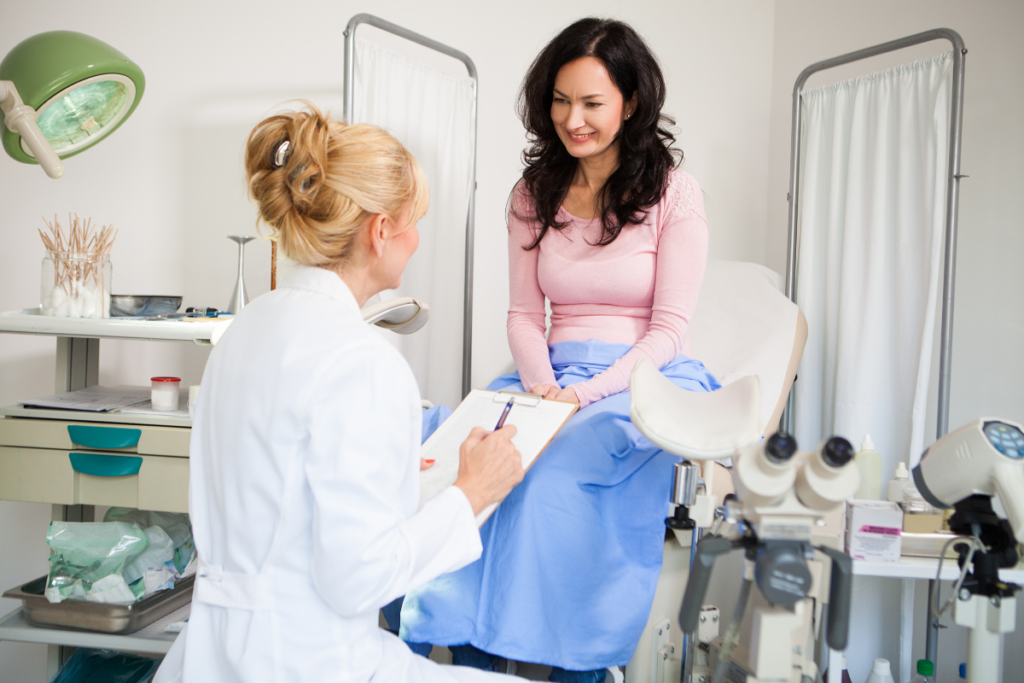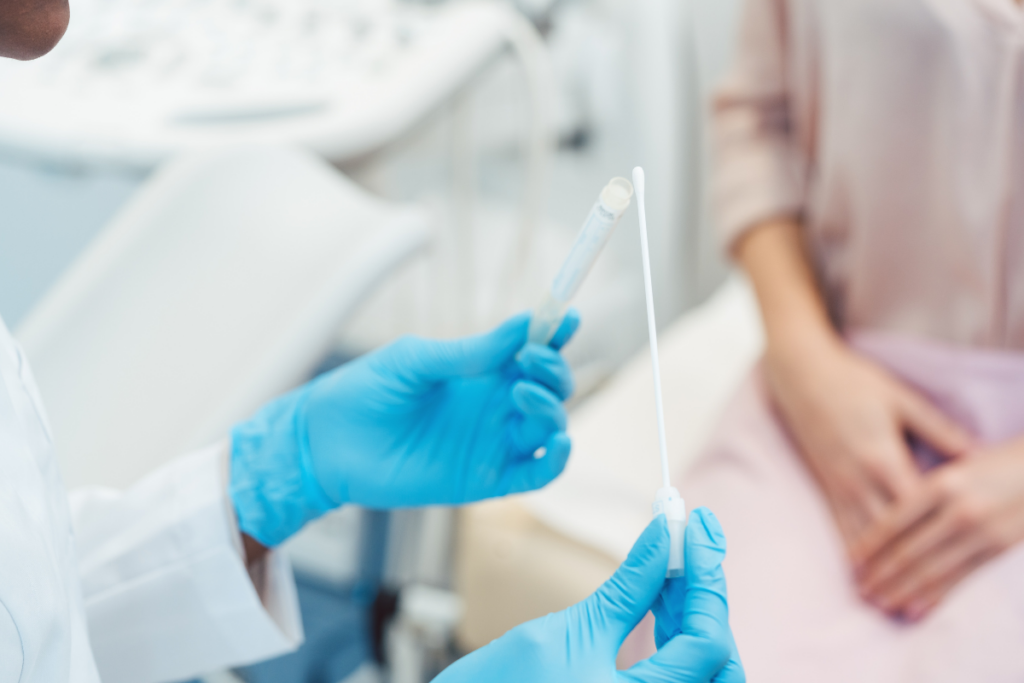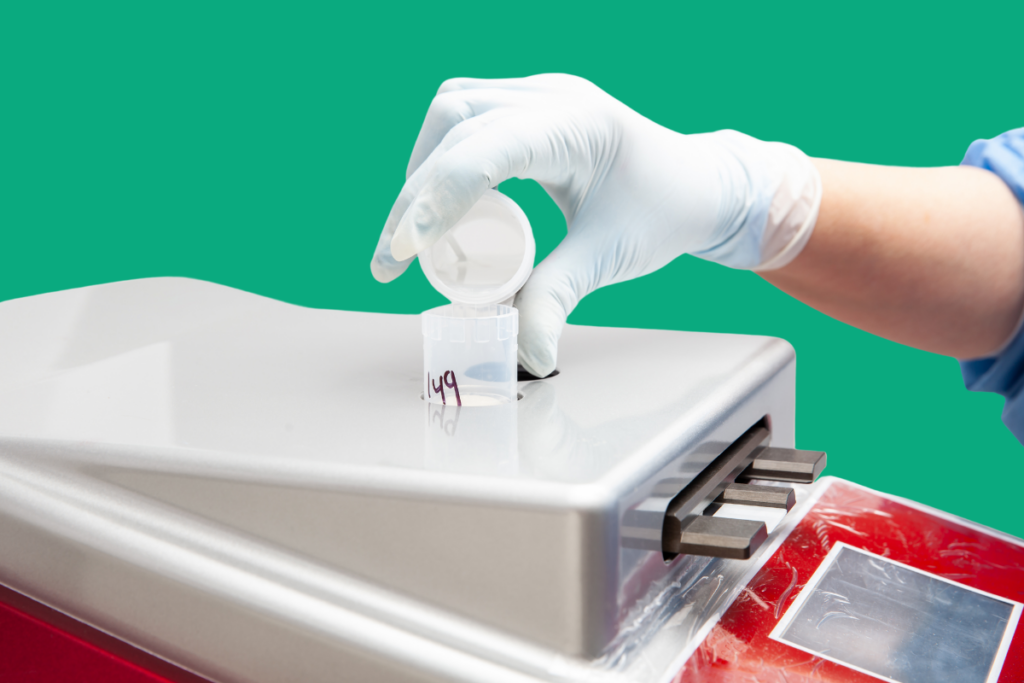A Pap smear is a screening tool for detecting precancerous or cancerous cells in the cervix, crucial for early intervention and prevention of cervical cancer. But if you’ve never had a Pap smear, or it’s been a while, you may have questions about what to expect. Even though appointments to the gynecologist are often intimidating, you may feel more at ease if you’re prepared for what to expect. In today’s blog, we answer some of the most common questions we receive about Pap smears.
The Basics of Pap Smears
A Pap smear, sometimes called a Pap test, is one of the most effective forms of protection against cervical cancer. But what exactly is a Pap smear?
What is a Pap Smear?
A Pap smear is a simple outpatient procedure, typically performed by primary care providers or gynecologists, that tests the cells of your cervix to look for abnormalities. In particular, Pap smears check for abnormal cells that could become cancerous over time.
Why Should People Get Pap Smears?
Regular Pap smears are crucial for women’s health as they play a pivotal role in the early detection and prevention of cervical cancer. Cervical cancer is often difficult to detect in its early stages, with minimal symptoms. Pap smears are an effective method of screening for cancer, and by identifying abnormal cell changes, providers can intervene and reduce the likelihood of cervical cancer developing.
Pap Smear Frequency and Age Recommendations
Knowing when you should start getting Pap smears, how frequently, and when you no longer need to schedule screenings can be overwhelming. Don’t worry – we’re here to break it down for you. Your age and health history are two primary criteria for determining when and how frequently you should start receiving Pap smears.
When Should You Get Your First Pap Smear?
Typically, medical professionals recommend scheduling your first Pap smear at age 21, regardless of whether you’re sexually active or not. Depending on your family’s history of cancer, your doctor may encourage you to receive a Pap smear even earlier than 21.
How Often Should You Get a Pap Smear?
Usually, Pap smears should be performed every three years after your first test, presuming your results return normal. If your test comes back with abnormal results, your physician may want you to have more frequent screenings in the future.
When Can You Stop Getting Pap Smear?
The American Cancer Society recommends ten years of regular screening with no irregularities before stopping testing after age 65. Some circumstances could require continued tests, like if you’ve received abnormal results. Your doctor will work with you to let you know when you’re at a safe age to stop testing for cervical cancer.

Preparing for Your Pap Smear
It’s okay if you feel uneasy about receiving a Pap smear. That said, they are a vital procedure to receive. Knowing what to expect makes you feel more comfortable heading into your appointment.
Is There Anything You Should Do to Prepare for a Pap Smear?
It is best to schedule a Pap smear mid-cycle, about two weeks after the start of your last period. Avoid intercourse and the use of vaginal medicines or spermicidal foam for at least two days before the procedure. Make sure you inform your doctor if you have had sex or used any products in your vaginal area, as either could influence your results.
How is a Pap Smear Performed?
A Pap smear is a quick and relatively painless process. To begin, your doctor will insert a speculum into the vagina to hold it open during the procedure. Then, they’ll use a small spatula, swab, or brush to collect samples of cervical cells from your cervix. The specimen is then placed into an enclosed jar with a liquid solution. Usually, this entire process takes less than two minutes, and your gynecologist will explain what they’re doing and why.
Does a Pap Smear Hurt?
Even though some soreness can occur during a Pap smear, it’s usually mild. To minimize pain during a pap smear, try to relax as much as possible and breathe deeply during the procedure. If you’re nervous about pain, especially if you’ve never experienced vaginal intercourse, you can inform your provider, and they’ll do everything they can to prioritize your comfort. Afterward, you may experience mild spotting.
Interpreting Pap Smear Results
You don’t have to feel overwhelmed when it comes to understanding your Pap smear results. After your Pap smear, your provider will walk you through what to expect from your results.
How Long Does it Take to Get Pap Smear Results?
It typically takes about three weeks to receive Pap smear results. Your provider will tell you when to expect results after completing your test.
How Accurate Are Pap Smears?
Pap smears are typically accurate, but no test is perfect 100% of the time. If you receive an inconclusive result, your provider will let you know what steps you should take next.
What Is a Normal Pap Smear Result?
When a Pap smear test is returned with normal results, it suggests that no unusual cells were discovered in the sample. A normal result indicates you’re at a low risk of developing cervical cancer during subsequent years.
What Are the Different Types of Abnormal Pap Smear Results?
Pap smears detect abnormal cells. Abnormal results from a Pap smear may imply various types of cellular changes, which could range from mild to severe. It’s important to note that an abnormal result does not necessarily mean you have cervical cancer — your provider will be able to share more about your results and any next steps either over the phone or during a face-to-face appointment.

Schedule Your Pap Smear at Community Access Network
If you’ve never had a Pap smear, that’s okay — our providers are here to help. We offer extensive women’s health services at our office on 5th Street, conveniently located in Downtown Lynchburg. Pap smears can help prevent severe cases of cervical cancer, and if it’s been a few years since your last test, give us a call at 434-818-7880.
